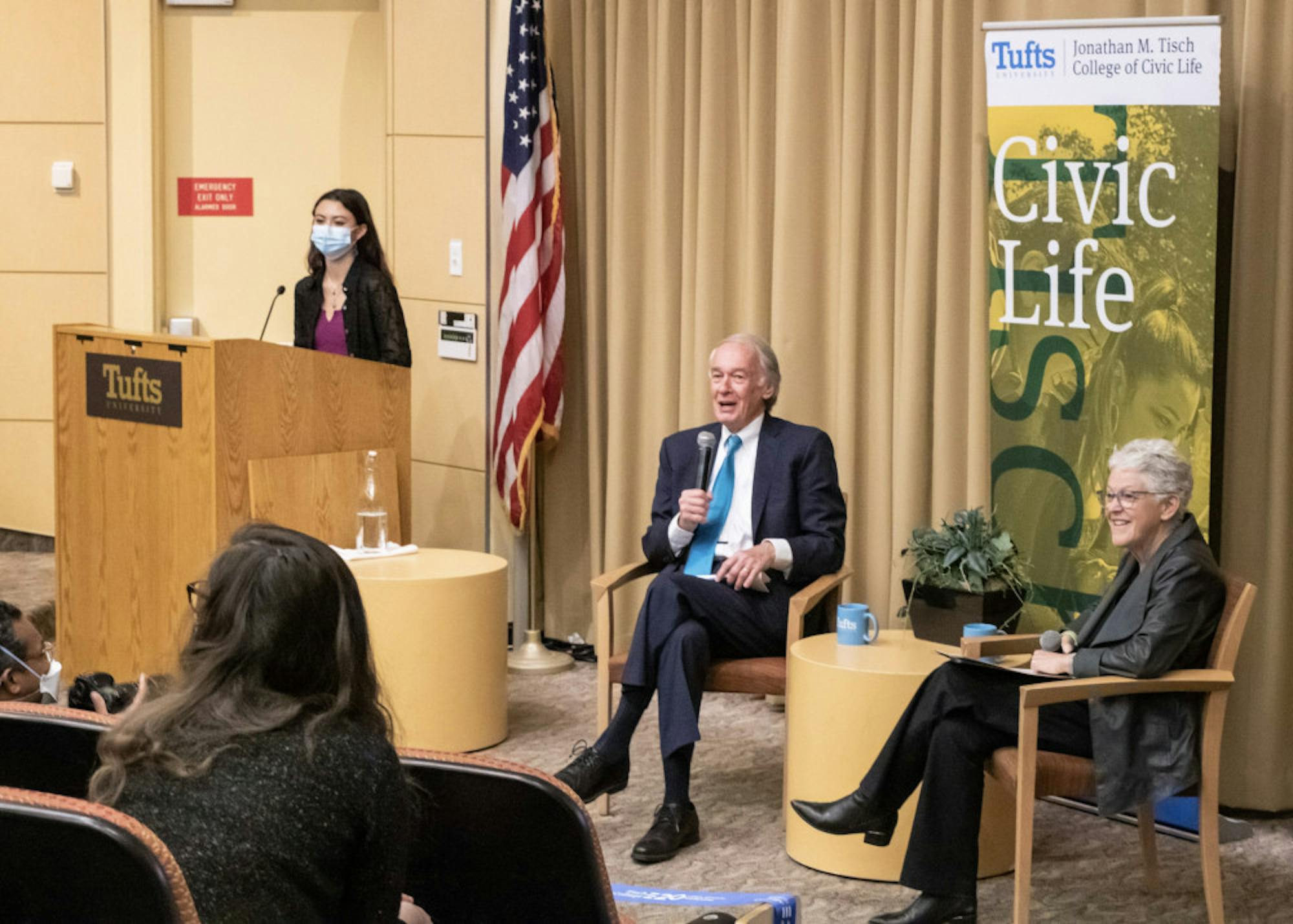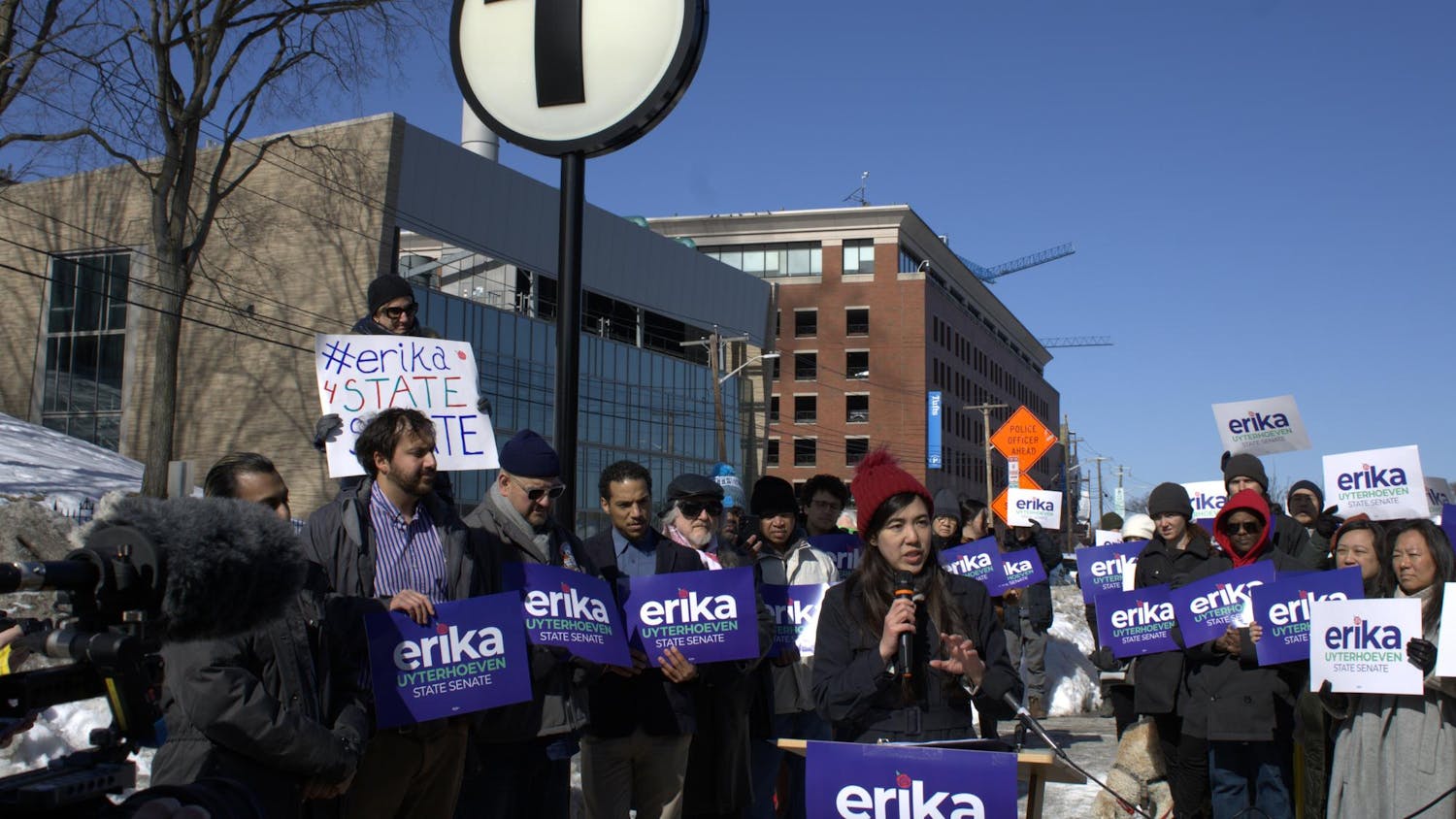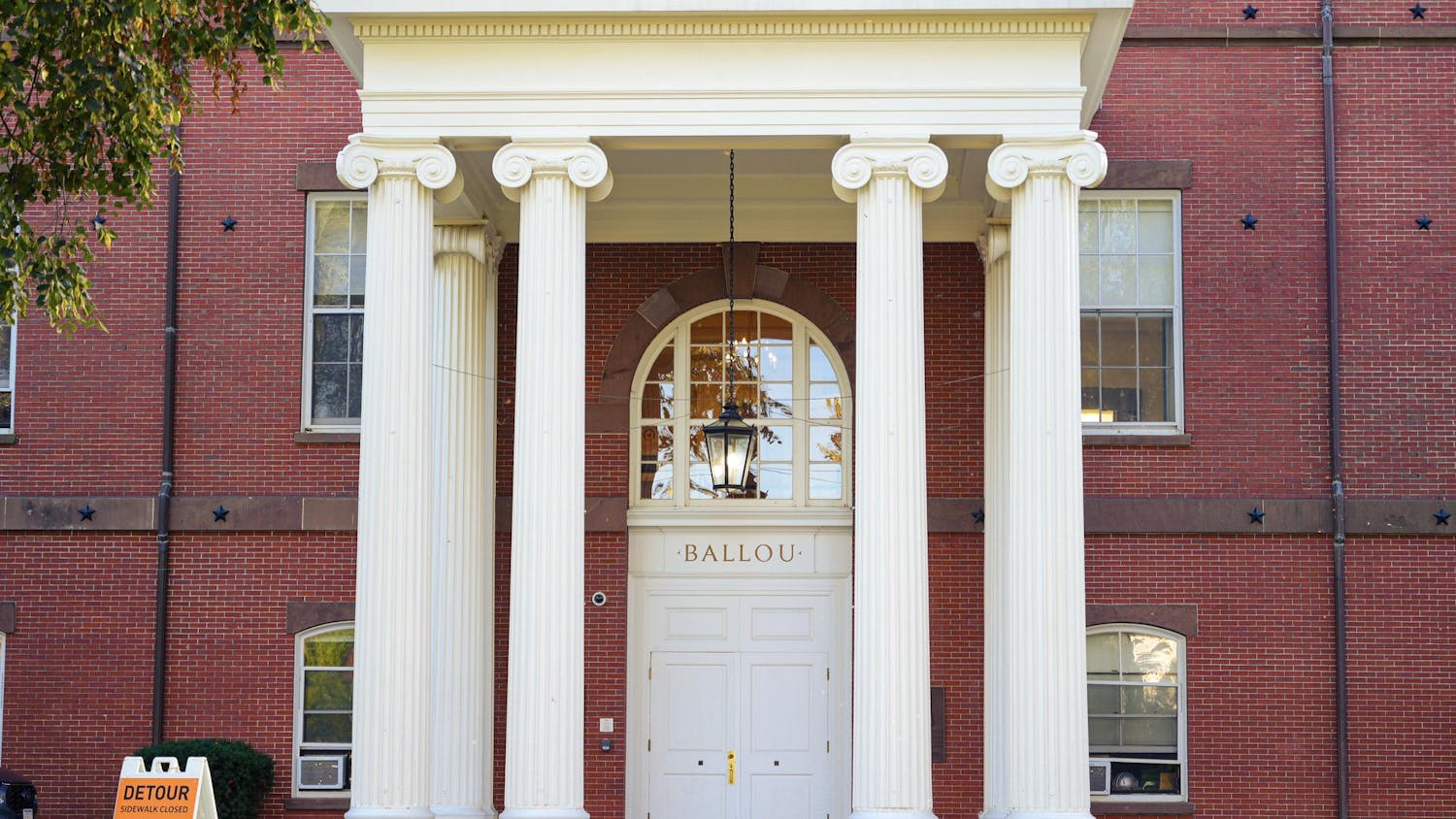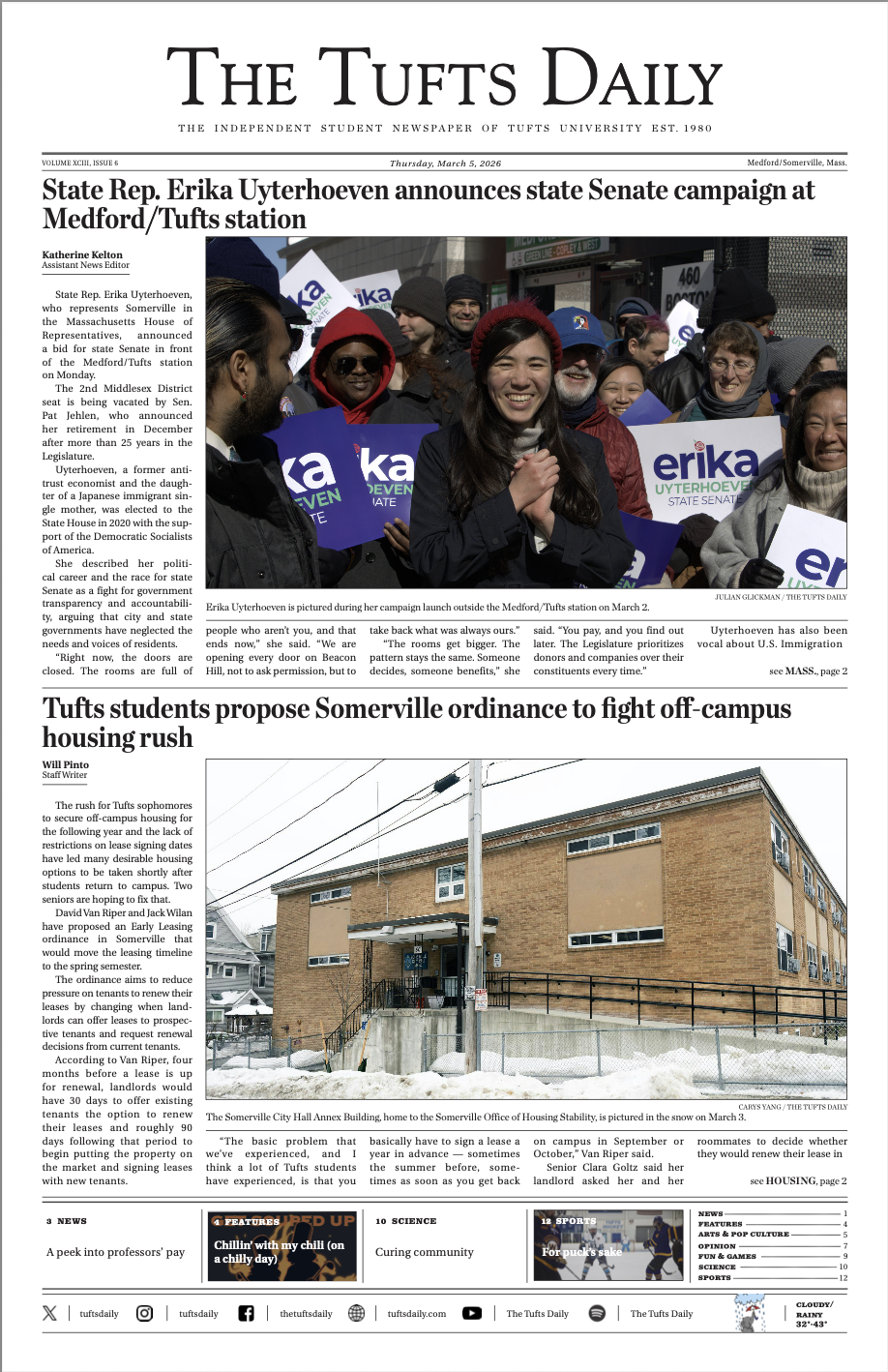Massachusetts Sen. Ed Markey (H’19) and White House National Climate Advisor Gina McCarthy (AG’81) visited Tufts to discuss measures in combating climate change on April 29.
Markey toured the Tufts campus before he took part in the Massachusetts Climate Summit, titled “Confronting the Climate Crisis: Global Solutions, Local Action.”
“It’s absolutely inspiring to be here at Tufts, because all of these young leaders are up and active and insistent that we pass the legislation that makes the United States the leader on the planet in fighting for [policy] change,” Markey told the Daily during his visit.
During his tour, Markey met with members of the Tufts Pollinator Initiative and briefly spoke about ways young activists can stay motivated in the fight against climate change.
“The previous generations have let down this generation,” Markey said. “We need to ensure that this generation does not agonize, but it organizes to make sure that we put the preventative measures in place that make it possible to avoid the worst, most catastrophic consequences of climate change.”
In the ASEAN Auditorium at the Cabot Center, Markey began his speech by offering some advice and praise to students.
“You have to learn how to work smarter, not harder,” Markey said. “That’s what Tufts is all about.”
Markey then called for the passage of the Green New Deal.
“Real leadership will come through an equitable transition to a zero-carbon economy and a 100% clean, renewable and carbon-free energy grid,” he said. “And we can do it. Our fossil fuel addiction is a catalyst for conflict. The Green New Deal is a pathway to peace.”
Following his speech, Markey introduced McCarthy as the keynote speaker. McCarthy, who served as administrator of the Environmental Protection Agency under former President Barack Obama, spoke about the urgency of transitioning to green energy sources and the importance of leading the world in climate action.
“If the U.S. doesn’t show some leadership, then it’s going to be very difficult to get other countries that are not as wealthy as we are to understand the benefits of clean energy,” McCarthy said.
McCarthy stressed the intrinsic link between the climate and humanity.
“We want to deliver for people, not the planet,” McCarthy said. “The planet will be benefited by the action we take. But please don’t start by telling people that we’re killing our planet. We’re killing our people.”
McCarthy discussed the climate portion of President Joe Biden’s Build Back Better plan, which would provide more than half a trillion dollars in tax credits and investments in renewable energy.
“We need Congress to deliver us $550 billion,” McCarthy said. “Is that a lot of money? Yes. Is it too much? No … because the cost of climate is so much higher.”
Following their addresses, Markey and McCarthy answered questions submitted by students from around the country.
Markey explained that the U.S. should use federal funds to help lower the costs of electric vehicles and to offer tax breaks for individuals looking to go electric.
“Wind and solar, in most states, are actually more affordable for utilities to deploy than coal or natural gas,” Markey said.
McCarthy echoed Markey’s points about the affordability of wind and solar power.
“The secret that sometimes folks in D.C. forget is that wind and solar and battery storage are cheaper than fossil fuels,” McCarthy said. “In fact, electric vehicles will save people money. All we need is to make sure that the sticker price doesn’t stop people from having access to a car that will keep themselves and their families healthy.”
Markey and McCarthy addressed the disproportionate effects of climate change on communities of color.
“There’s some difficulty in understanding the inherent structural discrimination against communities of color,” Markey said. “The commitment is that 40% of [the $550 billion allocated to climate action in the Build Back Better plan] will go to communities of color.”
McCarthy added that environmental justice communities should be encouraged to participate in projects and be included in the decision-making process.
“If we want environmental justice communities to access these grants, then you have to give training,” McCarthy added. “You have to invest in HBCUs, you have to invest in community colleges, so that everybody can understand how they can invest in … the technologies of tomorrow.”
Markey emphasized that students would help implement the solutions to the climate crisis.
“Young people want change,” Markey said. “They realize that there’s an urgency to this problem. They can see that the planet is dangerously warming. The planet is running a fever, and there are no emergency rooms at Tufts Medical School for plants.”
During her speech, McCarthy paid tribute to her mentor Sheldon Krimsky, a longtime Tufts professor in the Department of Urban and Environmental Policy and Planning, who passed away on April 23.
“He will live on in our memories and in the work of his students, who he demanded that we go out and make the world a better place,” McCarthy said. “I just want him to know, wherever he is, that I keep trying, and I always will. So his legacy will live on.”






